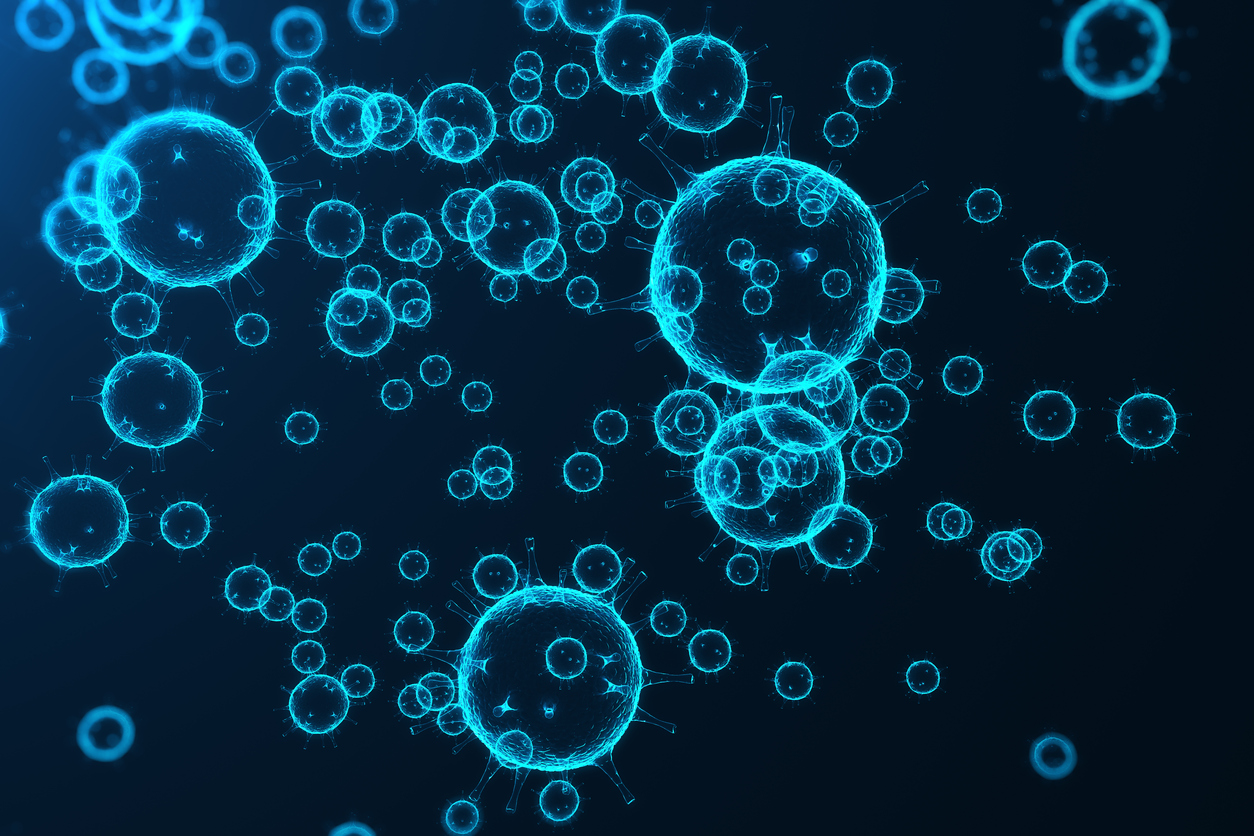
Diverse technologies available for researchers to selectively bind or enrich exosomes and extracellular vesicles.
Two research articles demonstrate useful BSG products for exosome depletion and enrichment needs.
Exosome Depletion and Enrichment – Useful BSG Products
Biotech Support Group offers diverse technologies for researchers to selectively bind or enrich exosomes and extracellular vesicles (EVs). Two recent research articles show how to:
- Deplete extracellular vesicles to study cell-cell communication
- Enrich exosome protein cargo by depleting Albumin
Background
Interest in exosomes and extracellular vesicles (EVs) has exploded in the past decade. This is because EVs are thought to provide a means of intercellular communication and transmission of macromolecules between cells. EVs have been attributed to roles in the cellular communication of proteins, lipids, mRNA, miRNA and DNA and as contributing factors in disease. Since EVs can also be isolated from accessible biofluids such as blood and urine, they are also under investigation for the biomarker cargo they might carry.
The First Challenge
Bone marrow-derived mesenchymal stromal cells (MSC) have been shown to support human antibody secreting cells (ASC) survival ex vivo. To better understand the mechanisms involved, the cell-cell communication role of extracellular vesicles (EVs) was investigated in the referenced article for antibody secreting cell survival and IgG secretion.
Citation:
Nguyen, Doan C., et al. "
Extracellular vesicles from bone marrow-derived mesenchymal stromal cells support ex vivo survival of human antibody secreting cells." Journal of extracellular vesicles 7.1 (2018): 1463778.
The Solution
Offering a simple, efficient proteomic sample preparation technology for clearing lipid-associated macromolecules, the investigators explored the use of Cleanascite™ to deplete extracellular vesicles.
The article states "Cleanascite-treatment of the secretome dramatically reduced ASC functional survival, … Similar reductions were also noted with the secretome of non-irradiated MSC when treated with Cleanascite … These results demonstrate that lipid-membrane bodies, such as EVs, could mediate important ASC survival factors within the MSC secretome."
Additional key advantages of Cleanascite™ include:
- A high binding capacity for lipids with minimal cross-reactivity with proteins
- Helps purify antibodies, recombinant proteins, nucleic acids, proteoglycans
- Ideal for clarifying ascites, serum, cell & tissue culture, bile and organ homogenates
The Outcome
Without a reliable aqueous-based product to deplete lipid associated complexes, such as EVs, the study would have been compromised by many other matrix factors that could influence the cellular response. Because Cleanascite was proven not to alter protein functionality, the EV depletion was simple and efficient.
The Second Challenge
Poor understanding surrounds exosome cargo in relation to immune responses and oxidative stress. To address this, a study was undertaken in HIV patients; relationships to immunological and oxidative stress markers were characterized by several analytical platforms, including LC-MS/MS proteomics. Due to its high mass content in serum, Albumin masks the many features of exosome protein content requiring a simple way to deplete this influence.
Citation:
Chettimada, Sukrutha, et al. "Exosome markers associated with immune activation and oxidative stress in HIV patients on antiretroviral therapy." Scientific Reports 8.1 (2018): 7227.
The Solution
Offering a simple and efficient method to remove >90% of serum Albumin from samples, researchers used
AlbuSorb™ for their analysis.
The article states "To obtain purified exosome fractions for proteomic analysis,… albumin was depleted with 2 rounds of albumin depletion using AlbuSorb™ - Albumin Depletion Kit (Biotech Support Group)".
Using untargeted proteomic analysis, Exosomal Notch4 was increased in HIV-positive subjects versus controls and correlated with immune activation markers.
Additional key advantages of AlbuSorb™ include:
- Affinity-type equivalence, virtually no cross-reactivity with other proteins
- No specialized instruments or HPLC - simply weigh powder, condition the sample, centrifuge and/or filter, and recover the albumin depleted serum
- Mild conditions maintain tertiary structure of proteins and simple transfer to post-treatment analysis
The Outcome
Because exosomes are large hydrophobic vesicles, separating them from surrounding protein content can prove to be difficult. Nevertheless,
AlbuSorb™ has been demonstrated here to be useful in depleting albumin and enriching the exosomal protein cargo. The results demonstrate that LC-MS/MS proteomic analysis of the exosomes is not compromised by interference from serum albumin.
Key BSG Featured Advantage: Consumable
Both Cleanascite™ and AlbuSorb™ in these applications feature the BSG Advantage, Consumable
- Cost-effective, not derived from biologicals
- No specialized instruments or HPLC
- Consumable easy to use formats
- No regeneration, so no prep to prep variability
|